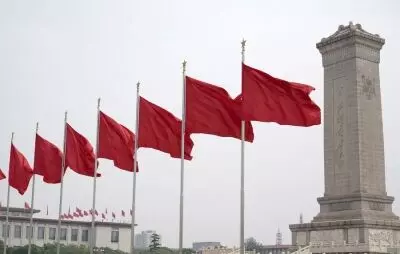
Report highlights China's growing influence in the UN
text_fieldsNew Delhi: A study by Gateway House tracing China's expanding influence in the United Nations and other related bodies reveals that the country is in a dominant position in several critical multilateral bodies, in both personnel and funding.
The research conducted over four months in 2020-21, study the most important multilateral agencies in the world including UN agencies, funds and programmes, as well as non-UN security, finance, and scientific agencies.
The International Telecommunications Union (ITU) which sets global telecommunications standards, has China's Huawei as a major player. UNIDO formed to encourage industrialisation in the developing world endorses China's Belt and Road Initiative (BRI), which UNIDO now endorses.
China's positioning at International Civil Aviation Organization (ICAO), which sets air navigation and safety standards ensured that Taiwan was excluded from all discussions during the pandemic. Similarly, China had disproportionate influence over World Health Organization (WHO).
Moreover, despite China's abysmal human rights record, China was elected a member of the UN Human Rights Council (UNHRC) with the lowest number of votes during recently held triennial elections to elect 15 new members.
On May 4, China's Vice Minister in the Ministry of Commerce, Xiangchen Zhang was appointed as one of four new Deputy Directors-General of the World Trade Organization (WTO) along with the US, France, and Costa Rica.
The study highlighted that it has been part of China's global agenda since 1992 to dominated and leave its mark on the external global system.
By 1997, China was a member of 20 per cent of multilateral organisations, up from 12 per cent in 1989, and by 2002 the country started to create new ones, like the Shanghai Cooperation Organization.
Over the last two decades, China has carefully set clusters to influence the global multilateral system and interlinked them with their domestic agendas like "Made in China 2025', and the rise of Chinese companies.
According to the study, China's increased monetary contribution to the UN- both mandatory as a UN member and voluntary donations have risen by 1096 per cent and 346 per cent respectively from 2010 to 2019.
The study found that China is present either as the head or a deputy position in almost all the critical international agencies.
China directly heads four of the 15 principal agencies of the UN namely, FAO, UNIDO, ITU, ICAO.
Chinese deputies are present in nine of the 15 agencies - World Bank, International Fund for Agricultural Development (IFAD), International Monetary Fund (IMF), IMO, UN Educational, Scientific and Cultural Organization (UNESCO), World Tourism Organization (UNWTO), WHO and the World Meteorological Organization (WMO).
The study further revealed that China influences UN agencies through its proxies. For example, the current Director-General of the WHO, Tedros Adhenoum Ghebreysus was elected with China's support in 2017. He is the former health and foreign minister of Ethiopia, which is one of the largest recipients of Chinese investments in Africa.
The study said China has built a network of its nationals as career professionals or diplomats at the lower rungs of the UN system. These officers, who have entered the UN system laterally, or through the Junior Professional Officer (JPO) programme may not act impartially.
Most international agencies are under the firm influence of Western powers. For instance, the World Bank is with the US, the IMF is with the EU, the Office for the Co-ordination of Humanitarian Affairs (OCHA) is with the UK, and the Department of Peacekeeping Operations is with France. However, China has also been trying to get its people in senior positions at various financial institutions, eg: Shaolin Yang at the World Bank and Tao Zhang at the IMF.
In institutions where China occupies no position, it has signed Memorandums of Understanding with UN agencies through relevant domestic ministries, often leveraging its capacity for voluntary funding. Thus in effect, China's foreign policy agenda gets endorsed and co-promoted by the UN.
Looking into contributions China is the second-largest donor in mandatory contributions i.e 12 per cent of the total. Its voluntary donations have also been increasing, from $51 million in 2010 to $172 million in 2019, a 346 per cent rise in nine years. Combined, China becomes the fifth-largest donor to the UN.
The voluntary contributions enable the UN's funds and programmes agencies to run their special projects, as only administrative, daily expenses are covered by the UN's core budget, the study said.
So, when China makes a $7.5 million contribution to the UNDP, it can influence the way development projects are implemented. So, China is increasingly involved with the UN's Department of Peacekeeping Operations (DPO) through a recent $1 billion pledge to the UN Peace and Development Fund as its largest donor. This is a way for China to keep an eye on its investments in Africa.
Moreover, many state-owned companies of China are also prominent in the UN. For example, The International Seabed Authority, which is "mandated under the UN Convention on the Law of the Sea to organise, regulate and control all mineral-related activities in the international seabed area for the benefit of mankind as a whole" has awarded five contracts to Chinese companies for deep-sea mining of polymetallic nodules, sulphides, and cobalt-rich ferromanganese crusts, the study said.
(With IANS Inputs)





